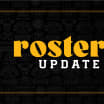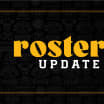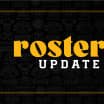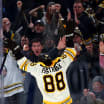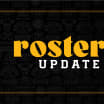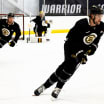BOSTON - Bruce Cassidy was some five years removed from his last National Hockey League coaching experience when the Bruins won the Stanley Cup in 2011. After two years as head coach of the Washington Capitals and a yearlong stint as an assistant with the Chicago Blackhawks, Cassidy was trying to work his way back to the sport's highest level.
As an assistant with the Providence Bruins during Boston's championship run, Cassidy helped oversee the "Black Aces," a group of scratches from the AHL who were with the team staying fresh in case of injury or other needs.
After Long Journey, Cassidy Back at the Helm
Interim tag removed, he's named 28th head coach in Bruins history
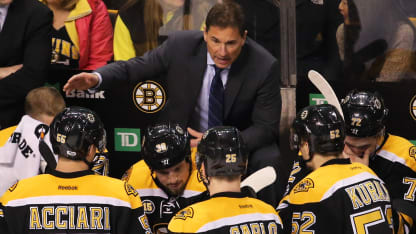
It was a period of time that stuck with Cassidy as he continued his journey towards a return to the NHL.
"I was part of the Black Aces when they won the Stanley Cup in 2011," said Cassidy. "It did wonders, I thought, for getting acquainted with the ways of the NHL. Even though I was on the outside looking in, you still feel a part of it - the togetherness required, everything that goes into it."
Cassidy drew on those experiences over the following five seasons as head coach of the P-Bruins - a tenure that ultimately led him back to Boston.
"Being down there, again, it's just what goes into being a head coach and what goes into being involved with the Bruins family. I thought that was the biggest takeaway from my perspective," said Cassidy, who was officially introduced as the 28th head coach of the Boston Bruins during a press conference with general manager Don Sweeney Thursday morning at TD Garden.
Now, some 13 years after his last NHL head-coaching job, the 51-year-old Ottawa native is again at the helm. It was his 18-8-1 run after taking over as interim head coach on Feb. 9, and a trip back to the Stanley Cup Playoffs for the first time in three years, that convinced Sweeney he was the right man for the future.
"Despite the season abruptly ending on Sunday, I felt very comfortable moving forward quickly to name Bruce the head coach," said Sweeney, who acknowledged Cassidy was inked to a multi-year deal. "Bruce summarized it very well the other morning. When we sat down and finalized it, when I said congrats, he said, 'That's good, because that was a long, hard interview.'"
The 27-game stretch as interim head coach, as well as another six during the teams' first-round playoff series with the Ottawa Senators, showed Sweeney that Cassidy was able to get the most out of the group he inherited.
"I think that the way our team responded to his message - we had an aggressive bent to our game," said Sweeney. "We scored more goals, we didn't lose defensive structure and our foundation, our penalty kill remained to be top in the league, and our power play got better as the season went along. To me, it spoke to the change that our team responded to, that our core players responded to, and our young players responded to."
Cassidy had coached many of those young players during his time in Providence and during the first half of the 2016-17 season as an assistant to Claude Julien. He knew that familiarity would work in his favor.
It was the veteran core that he believed he would have to win over. And that he did.
"To be quite honest, the core group, the veteran leadership, they gave me an opportunity to go in and earn their respect, and they bought into what we were selling for the most part. Not for the most part - 100 percent. 100 percent," said Cassidy.
"The veteran guys, they afforded me that opportunity and I can't thank them enough. We've got some Stanley Cup champions in that room and it showed with high character players and I was very thankful for that. From there, we're trying to build something together now."
The biggest change Cassidy made was to play with more of a pace. Practices lasted longer and were conducted at a higher tempo. Forwards were encouraged to make plays down low, rather than shuffle the puck up to the point. And the defense corps was advised to join the rush and be more active in the offensive zone.
As a result, the Bruins scored 91 goals during Cassidy's 27 games, an average of 3.3 goals per game.
"Our staff and Bruce, they really pushed the group to get to a higher pace. I think our aggressive nature churned," said Sweeney. "I think that was something that I felt would be injected into our group right from Day 1 at practice because I know what his core principles are, and I think the group responded."
Carrying over that response into the future will be Cassidy's biggest challenge moving forward. Having a full training camp to install a system will help.
"Going into training camp, obviously, it will be an advantage. We can start from Day 1 implementing, going forward, the things that we want to focus on. We'll get together as a staff and sort through that," said Cassidy. "We had player exit interviews and we'll get the players opinion and what we feel is the best way to be successful."
Cassidy has had a taste of that success. His journey back to the NHL is complete. With a team that means so much to him.
"I've made no secret that I grew up adoring this team," said Cassidy, "and I'm very proud, honored, and privileged to be a part of it, and to be named the head coach."






